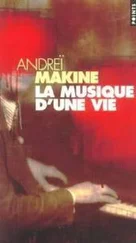Anna, who has joined them, hears these last few words and tries to explain that, amid all the shooting, in a building on fire, there was no time to go and open the safe and take out the briefcase in question. The man feels caught out by this observation, for he is the one, given his function, who should have rescued these “top secret” diskettes. But he is already fabricating an alibi for himself, looking for scapegoats. “Just you wait! Back in Moscow heads will roll. Just you wait. Expect the worst. I’m warning you…”
A figure I do not recognize at once: a man dressed in a simple T-shirt and jeans. Elias. He must have been standing a couple of yards behind me, beside the car. He has heard everything. “What’s the combination for the safe?” he asks, addressing the man in the velvet suit. “Why? What do you mean? Do you expect me…” The man’s voice is choked. “The combination?” repeats Elias more softly, looking at Vadim, who turns away slightly. Anna swiftly reels off a string of figures. An explosion very close at hand deafens us; the crowd of penguins utters a howl. I have time to see Elias offering the driver a fistful of notes. The car drives off.
A continuous drumming of fists on the steel of the gate. Then an amazing lull, as if an armistice had finally been agreed. Unless it’s the hour of prayer. The setting sun is still burning hot but will rapidly sink into the equatorial night. The smoke has already filled the city with an oily, suffocating dusk.
The car returns at this moment. What will stay with me of that scene is its bizarrely slow-motion pace, the cause of which I do not yet understand. Yes, the steps Elias takes, as if in a time warp. He goes up to the man in the velvet suit, hands him the briefcase. Then, with equal slowness, he hands Anna a white scarf, the one she always covered her head with against the sun… He seems to be about to speak, but the words forming on his lips are inaudible. I believe what he says is being drowned by the sudden grinding of the gate. Then by the shouts of the crowd moving forward, plunging into the American paradise that is now ajar.
The penguins jostle one another; a woman’s hysterical cry can be heard (“You’ve lost your sandal!”), the ambassador’s voice trying to discipline this mad rush, to give it a little dignity. For it is the “American imperialists,” their eternal enemies, who are about to give them shelter. I just have time to note the farcical nature of the situation and to glimpse a woman’s face in the middle of the crowd being sucked into the funnel of the gateway. This face, Anna, looking back several times, and Vadim drawing her along by her arm. I glance behind me, but I can no longer see Elias. Neither in the crowd, nor in the Somali’s jeep…
“He’s over there!” I recognize Leonid’s voice. Elias is sitting down, his back against the wheel, his eyes open, his hands trailing on the ground. His left arm, from shoulder to wrist, is red. A great patch spreads over his T-shirt as well, on his belly… We lift him up; his head moves, and he is still trying to speak. Then we notice that the gate has closed once more. Leonid yells, kicks against the steel. Two cars pass in the street. Bullets chip at the paintwork on the gate right by our heads.
A scrap of garden with trees nicked by shell splinters, a house transformed into a makeshift hospital, a butterfly (no, a humming bird) beating against the glass of an oil lamp. The stink of a generator, the bitter acidity of dirty, bloody bodies, and from time to time, like the reminder of an impossible world, the cool of the ocean breeze. The buzzing of flies in this “operating room,” the crunch of shattered phials underfoot, the continual, monotonous groaning of the wounded and their families.
Leonid works, assisted by a Somali doctor who is very slowly chewing a ball of khat. The hummingbird, intoxicated by the light, spirals down toward the busy hands. Leonid knocks it aside as one would swat a mosquito. The bullets he extracts and tosses into a metal basin make a sound similar to that given off by melting ice. From time to time the explosions obliterate all sound, then the movements of the two doctors become invested with a hint of unreality. Leonid operates without weeping. And yet his tape recorder sleeps in the big knapsack thrown down beside the door… I study his face. No, the eyes are dry, just reddened with tiredness.
He straightens up, puts down the lancet, draws a sheet over the body. “Theres no way he could have set one foot in front of the other with the wounds he had… he murmurs. His eyes stare at me without seeing me. For a fraction of a second I believe I have touched upon the truth of what has happened: the man who had reappeared before us, a black briefcase in his hand, was no longer alive but moved forward, remaining upright, propelled by a force that resided somewhere other than in the body that now lies beneath this sheet.
We spend a whole day driving around in the blazing trap that is Mogadishu. The fact of carrying a dead man sometimes helps us to pass through roadblocks. Despite the violence of the slaughter, these mortal remains seeking burial inspire a distant echo of the sacred in the fighters. In some streets the smoke from the fires is so thick that we have to pause before moving on, not knowing what we shall see when the darkness clears. It could be that man whom a shell has welded to a wall in an incrustation of blood and torn garments. Or that child, which has made itself a little airplane from the blade of an electric fan and is playing at launching it in the middle of the gunfire. Or yet again, as in an appalling nightmare, the turret of a buried tank: our attempts to escape had led us into the area of the presidential palace, which was protected by these sunken tanks, transformed into artillery pieces. The gun barrel moves with a somnambulistic slowness, points at us, stops… We make a sharp U-turn and drive away, feeling on the backs of our necks the full weight of this weapon taking aim.
A helicopter passes in the sky. We know at once that this is the Americans evacuating their personnel – and the members of the Soviet embassy – onto the aircraft carrier Guam . I remember Elias s words: “You’ll soon be best friends with the Americans
At nightfall our driver leaves us several miles north of Mogadishu. He tells us he has run out of gas, and we have run out of money to pay for his services. During the night Leonid goes off toward the harbor, hoping to find some means of getting us onto a boat. The fever that was beginning to shake me the previous day changes into a fit of the shivers, which I cannot throw off, even pressed against the wall of a blockhouse that still holds the heat of the day. I wrap myself in a tarpaulin sheet found among the carcasses of cars. For a moment my shivering calms down. I adjust the blanket on Eliass body then clasp his hand in mine. It seems icy to me, but like that of a man who has come in from a winter night, from the great plains of snow. The borderline between his death and my life seems incredibly fine. The same sand, still warm, beneath our bodies. The same slightly ashen darkness of the ocean. The same receding banks of cloud in the sky. Never before have I felt the presence of an absent one so intensely.
Leonid returns. He has had the luck to meet the engineer from a small cargo boat, quite an elderly man who trained in the USSR. This nostalgia was not enough, however: Leonid had to give him both our watches and the money found in the leather pouch Elias carried on his belt.
Our embarkation takes place amid the ferocious melee of people staking their all to survive. No priority for anyone – men push women aside, trample on children. Leonid goes first, gripping the top end of the blanket in which Elias’s body is wrapped. What helps his progress is his weeping malady, which suddenly overcomes him again. Even in the midst of this throng, people stand aside from what they take to be a supernatural being, a young man with completely white hair, his features disfigured by sobbing. I find it difficult to follow him, breathless, my jaws clenched to stop my teeth chattering at each spasm of fever. A child clings to my jacket and is dragged through the crowd on the landing stage. “YouVe got malaria!” Leonid shouts suddenly as if this diagnosis could make my task easier.
Читать дальше









